Voting, Not Violence, Is Still The Way Forward
When a conservative evangelical cites Dietrich Bonhoeffer in support of his views, as I have, it tends to trigger a certain slice of the liberal evangelical sub-culture. That is what happened recently at Christianity Today (CT). Under the leadership of former Southern Baptist Russell Moore, CT now reflects that brand of evangelical liberalism that took once over the Southern Baptist Convention (SBC) and that is desperate to steer the SBC to the Left again.
The incentive for doing so is not hard to identify—boasting nine billion dollars in assets, the SBC is by far the largest Christian denomination in North America. Liberals learned long ago that the fast track to the political influence they so desperately wish to exert is not to build their own institutions by owning up to their liberal views and winning eyes-wide-open support but instead to fake enough conservatism to weasel their way into institutions built by conservatives and take them over.
But why so touchy about Bonhoeffer?
Progressive evangelicals experience any deployment of Bonhoeffer’s life and letters in support of conservative aims as a usurpation, a kind of intellectual easement violation of territory belonging to them. I’ve breached that territory for almost two decades, beginning with my book Bonhoeffer Speaks Today in 2005 and in numerous publications since. On February 26 at American Reformer, I used Bonhoeffer to argue that Christians should vote for Donald Trump.
That’s a double trigger in liberal evangelical land.
And it was too much for Russell Moore at Christianity Today, resulting in Jared Stacy’s rejoinder:
“Many today have fractured and co-opted Bonhoeffer’s legacy by lifting his biography from his theology. This distortion creates a ‘Bonhoeffer option’—which amounts to tacit permission to entertain political violence as a viable solution.
In a recent article defending evangelical support for Trump, professor Mark DeVine does just that, writing, ‘Bonhoeffer saw civilization itself in the crosshairs of evil. So do Trumpers.’”
In my article, I do call for Christians to take action to resist the evil of the Democrat Party, not violent action, but the peaceful action of voting for Trump. Votes for Trump may “feel” like violence to progressives, but it is not. But these are the same progressives who taught us that “silence” is violence. Still, for Democrats such as Moore, silence is surely preferable to vocal support for Donald Trump.
Permission to entertain political violence for Christian ends is present in my article, borrowed from Bonhoeffer. His permission is not tacit, though. It is explicit—Bonhoeffer’s own participation in the conspiracy to kill Adolf Hitler.
Progressive protectiveness for Bonhoeffer should not surprise us. Bonhoeffer was a pacifist long before pacifism became cool in academic Christian circles. Bonhoeffer abandoned pacifism and volunteered to deliver one of the bombs with Hitler’s name on it. Bonhoeffer also never repudiated the higher critical hermeneutical approaches to Scripture that did so much to undermine the trustworthiness and authority of the Bible. In short, though Bonhoeffer rejected the protestant liberalism in which he was nurtured, his movement toward Christian orthodoxy was far from complete.
The leftover liberalism still attaching to Bonhoeffer saves him from the stigma liberal evangelicals themselves attach to conservative evangelicalism, which, to them, is just a half step from fundamentalism. Bonhoeffer remains “intellectually respectable” within the progressive academic guild, a respectability liberal evangelicals crave. Philip Rieff, following Sigmund Freud, said the clearest display of the moral character of culture appears in what it stigmatizes.1
For the Christian sub-culture Christianity Today inhabits and promotes, fundamentalists, Donald Trump, and Trump supporters head the list of lepers they consider unclean. Yet, that sub-culture, the same one to which Timothy Keller and the Gospel Coalition belong, is parasitic upon institutions built by conservatives, such as the Southern Baptist Convention and the Presbyterian Church in America. But for all their abhorrence and eschewal of conservative evangelicals, they still manifest that pleading insecurity expressed by Bob Jones Sr. more than a half-century ago: “I’ll call you a Christian if you’ll call me a scholar.”
Like G. K. Chesterton and C. S. Lewis, Bonhoeffer was no evangelical. But, lo and behold, conservative evangelicals read them, find stuff to praise, and do so. Liberals can’t stand that.
They experience little to no agitation when the liberal guild-friendly biographer Charles Marsh suggests, despite sufficient evidence to the contrary, that sparks of same-sex attraction flew between Bonhoeffer, engaged to Maria von Wedemeyer at the time of his execution, and his co-conspirator Eberhard Bethge. But the liberal friends of Bonhoeffer, after 13 years, still reel and chafe at Eric Metaxas’s blockbuster Bonhoeffer biography, Bonhoeffer: Pastor, Martyr, Prophet, Spy.
Metaxas, unlike many liberal champions of Bonhoeffer, highlights rather hides Bonhoeffer’s contention that abortion is murder and an array of dazzlingly articulated orthodox Christian teachings. Bonhoeffer’s The Cost of Discipleship and Life Together are not persistent favorites among conservative evangelicals for nothing.
Christianity Today’s problem is that the suggestion that political violence might at times prove justified issues not from me but from their pronouncedly non-fundamentalist darling, Bonhoeffer. Surely, a more honest and fruitful engagement with my article would state and assess the reasons I identified why Christian leaders should recognize that the Democrat party is evil, and thus, Christians should vote for Donald Trump. Here they are:
(1) The Democrat party is not just pro-choice but celebrates abortion on demand up to and even in the midst of the birthing process and displays a willingness to punish those who refuse to do so; (2) Biden’s instruction to children that adults, even their parents, who don’t support their transgender identification, are doing them harm; (3) The open fentanyl-delivering, child-trafficking, cartel and gang-controlled border; (4) K-12 schools flush with critical race theory and transgender-affirming textbooks that offer illustrated instruction in fellatio and cunnilingus; (5) Boys and men in girl’s and women’s bathrooms and locker rooms; (6) The weaponization of the IRS, FBI and Justice Department against political opponents; (7) Lia Thomas; (8) Intersectional admissions guidelines in higher education; (9) Double-standard legal system; (10) totalitarian, free-speech squelching DEI police at school and the workplace; (11) Bars open—churches closed during COVID; (12) The collapse of trust in health professionals serving at the highest levels of government; (13) Parents complaining at school board meetings called and investigated as domestic terrorists; and (14) Lawfare.
Now, note this rationale that Bonhoeffer recognized for proactive political engagement by Christians: there are “three possible ways in which the church can act toward the state.” The third way “is not just to bandage the victims under the wheel, but to jam a spoke in the wheel itself.”2 That reasoning should be as familiar to us as the aphorism “An ounce of prevention is worth a pound of cure.” Bonhoeffer was willing to risk his life to take the life of Hitler for the sake of those Hitler would harm should he remain in power. Timothy Keller, despite the manifest evil of the Democrat party, infamously said that Christians should not tell other Christians how to vote.
Timothy Keller, Russell Moore, and JD Greear have labored mightily to demonize those of us who refuse to embrace their campaign to sanctify Christian votes for Democrats, all the while accusing us of making an idol of Donald Trump and the GOP. But facts on the ground suggest that a “physician heal thyself” admonition might be in order. In her hot-of-the-press blockbuster book Shepherd’s For Sale, The Daily Wire’s Megan Basham reports that “out of hundreds of donations from employees of [Timothy Keller’s] Redeemer Churches and City to City, not one went to any Republican.” Likewise, “between 2015 and 2022, nine Christianity Today employees made 73 political donations. All of them went to Democrats.”
Russell Moore’s public outrage at the recent botched attempt of Kevin Smith to fire his successor at the ERLC, Brent Leatherwood, indicates that Moore still has his sights set on pushing the SBC to the Left. He understands that, compared to the SBC, Christianity Today is like a tick on an elephant’s behind. Leatherwood reflects the views of Russell Moore far more than they do the views of the 80+ percent of Southern Baptists and evangelicals who won’t stop voting for Trump no matter how many times Moore tells them they should.
The struggle for control of the Southern Baptist Convention has always been political and worth the efforts of conservatives to fight and win. Liberals have always understood that better than conservatives. Like the Democrat party propaganda machine, liberal evangelicals accuse their opponents of what they themselves are doing. They say a vote for Trump is all about power. And so it is. And they want it. They want it in the White House, at the ERLC, and at the head of every SBC institution.
It was Bonhoeffer, not moi, who suggested permission, in extrema condicione, for the use of violence by Christians. What Russell Moore fears is not more unarmed, mainly elderly couples strolling the capital after being waved in by Capital police. What he fears is a Donald Trump victory and conservative leadership of the ERLC and the SBC.
For such a time as this, love for our Baptist and American neighbors ought not wait to bury the dead and apply bandages to the living wounded after liberals in the SBC or in the Democrat party run over many of us. We should jam a spoke in the wheel of the evil progressive train bearing down upon us.
We can do this by taking the peaceful, proactive measures available to us—voting the right way.
- See especially Rieff’s Freud: The Mind of the Moralist (Chicago: University of Chicago Press, 1959), pp. 358-397, but also his The Triumph of the Therapeutic: Uses of Faith After Freud (Wilmington, DE, ISI Books, 2006), pp. 1-21 and Sigmund Freud, Civilization and Its Discontents (Seaside, OR: Rough Draft Printing, 2013). ↩︎
- Dietrich Bonhoeffer, A Testament to Freedom: The Essential Writings of Dietrich Bonhoeffer, Geoffrey B. Kelly and F. Burton Nelson eds. (San Francisco: HarperSanfrancisco, 1995), p. 132. ↩︎
-

Dr. DeVine teaches historical theology in the Beeson Divinity School at Samford University in Birmingham, Alabama. He is the author of multiple books and has written extensively for theological journals. Mark also writes on the intersection of faith, work, culture, and politics for national online magazines and has served as pastor for churches in Indiana, South Carolina, Kentucky, Missouri, and Alabama. The views expressed in this article are Dr. DeVine's personal opinions.

